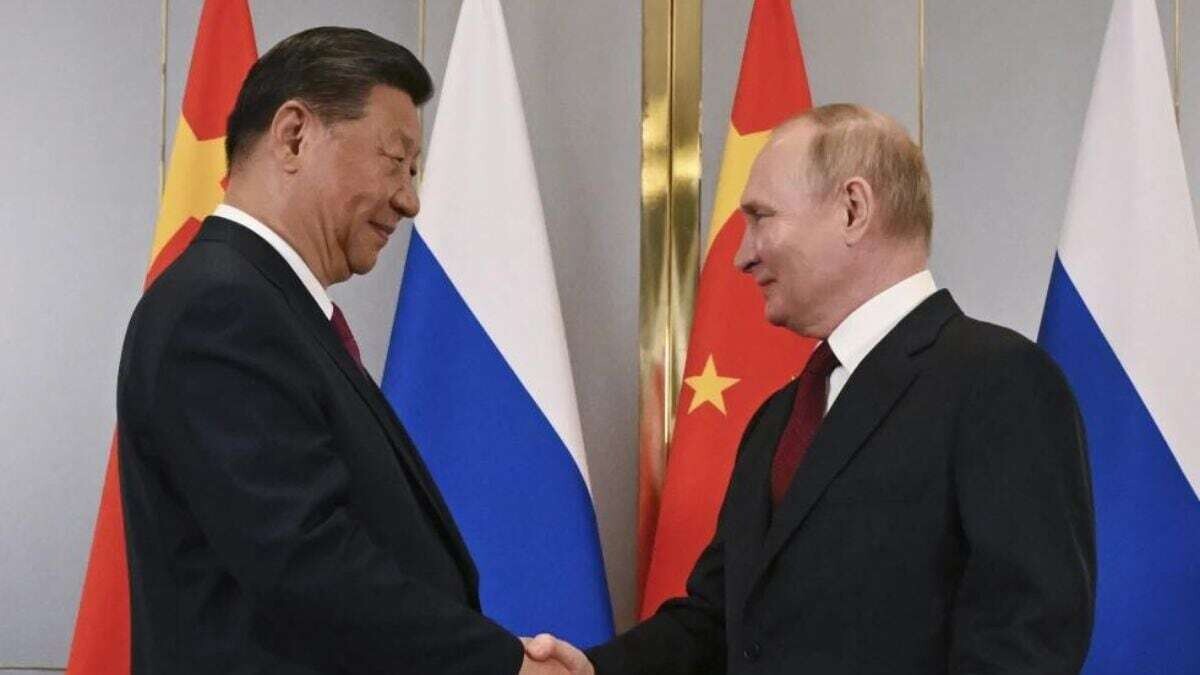
In the complicating trade relations between Donald Trump and China, after the introduction of sanctions, the Asian country seems to have a 'union' with Vladimir Putin, resulting in an increase of Russian goods, such as chocolate, cookies, honey and vodka. Stores specializing in Russian products have become very popular in China, which surprised the locals, who asked questions in Chinese social networks about why they appeared so quickly.
"In recent years, thousands of such stores have opened across the country, as they utilize the placement of Chinese public goods to Russia and deepen trade ties between Beijing and Moscow" since the beginning of the war in Ukraine, reported the CNN portal. After trade sanctions, which Russia faced since 2022 due to the war against Ukraine, China seems to be becoming a saving circle for Putin's country with Russian oil, gas, and coal at low prices. Moreover, other products, such as cheese, sweet pastries, and milk in bags, have also increased their presence in China.
"According to trade records, since 2022, more than 2,500 new companies have been registered engaged in the trade of Russian products, almost half of which were opened only in the last year. About 80 percent of new companies that successfully have risen are continuing to operate this month," notes CNN.
U.S. President Donald Trump stated on Monday, March 17, that his Chinese counterpart Xi Jinping "will come to Washington in the near future." The head of state also noted that high-ranking Chinese officials, "directly under" Xi, will also soon visit the U.S. capital, although he did not provide names or details about possible dates.
The Wall Street Journal reported last week that Washington and Beijing began discussions about a possible "summit meeting" in the U.S. in June, as both leaders marked their birthday on those dates: Xi turns 72 on June 15, while Trump turns 79 a day earlier.
Since returning to the White House on January 20, Trump has raised to 20 percent tariffs on Chinese goods, which were added to previously imposed tariffs that he introduced during his first term against more than $300 billion worth of imports from this Asian country, most of which remained in force under President Joe Biden.
Trump justified these tariffs as a reply to an alleged China’s inability to stop the flow of chemical precursors of fentanyl - an opioid, responsible for thousands of deaths in the United States. However, China accused Trump of using fentanyl as a justification to increase tariffs, and responded with tariffs on American goods.
Trump and Xi already communicated by phone in January, a few days before the inauguration of the American on the second term, in a conversation they discussed trade relations and the future of TikTok in the U.S., belonging to the Chinese company ByteDance.
Trump stated that he is open to negotiations on a new trade agreement with China and noted his admiration for Xi. Both leaders reached agreements in 2020 on ending the trade war, which slowed down both economies, according to which China was obligated to stop the theft of American commercial secrets and purchase $200 billion worth of additional goods from the U.S., but relations deteriorated due to the COVID-19 pandemic, for which Trump blamed China.














